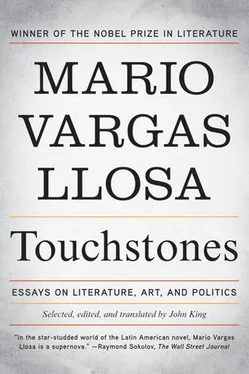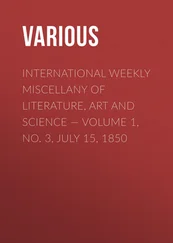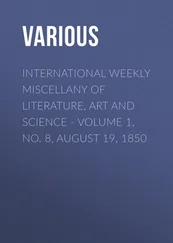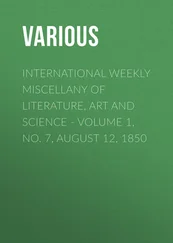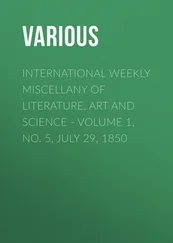Mario Vargas Llosa
Touchstones: Essays In Literature, Art And Politics
For Efraín Kristal,
wise and generous friend
Paradise is not of this world and those who set out to look for it or to construct it here are irremediably condemned to failure.
‘Traces of Gauguin’
Some ten years after the publication of an anthology of essays by Mario Vargas Llosa entitled Making Waves , this new volume, Touchstones , includes essays written, in the main, over this intervening decade. ‘Touchstone’ is the title of Vargas Llosa’s regular column — ‘Piedra de toque’ — in the Spanish newspaper El País . The two contrasting titles naturally imply a shift in the writer’s outlook, between ‘making waves’ and using a touchstone, between being immersed in every debate — as epitomised by his running for the presidency of Peru in the late 1980s — and having a more detached, perhaps less optimistic view of the possibility of taming or overcoming the demons that haunt our own lives or inhabit wider society.
The critic Efraín Kristal has usefully divided the development of Mario Vargas Llosa’s work into three distinct periods from the early 1960s to the late 1990s — his socialist beginnings, in which his novels diagnosed the corruption of capitalist society in Latin America; the liberal period which followed his break with the Latin American left in the 1970s, during which he explored the dangers of fanaticism and utopian thinking; and the period since losing the Peruvian elections of 1990, in which he seems to have lost his optimism regarding the effectiveness of political action. His contempt for authoritarianism remains as strong as ever, but is tempered by a recognition of the frailties of those with whom he disagrees. 1
Making Waves consisted principally of essays from the first two of these stages. Touchstones covers those written in the post-1990 period, together with several essays on literature written at the time of his direct involvement in politics in the preceding years.
The view that Vargas Llosa has become more pessimistic — others might say more realistic — or conciliatory with the years, does not suggest that he has become any less outspoken about certain political developments, in Peru and in the wider world, as we will discuss below: just read the essays dedicated to the fall of President Fujimori in Peru and the imprisonment of his sinister right-hand man, Montesinos, or the more recent essays on the rise of the left in Latin America where he contrasts the ‘boring’ (in a good way) Chilean model of gradual social development of a Ricardo Lagos or a Michelle Bachelet with ‘Third World’ Latin American elections ‘where countries going to the ballot box are staking their political model, their social organisation and often even their simple survival’ and where we find the increasing influence of the populist president Hugo Chávez in Venezuela.
Nor does this view suggest any slackening in an extraordinary pace and breadth of production. If we take the decade from 1996 to 2006, not only has he published four novels, but also, in terms of non-fictional writing, a book-length study of the Peruvian writer José María Arguedas; a collection of essays taken from his ‘Piedra de toque’ articles published in El País ; a short book, Cartas a un joven novelista ( Letters to a Young Novelist , 1997); a 2002 re-edition of his book of essays on twentieth-century fiction, La verdad de las mentiras ( The Truth of Lies ); an Iraq Diary (2003); a book-length study of Victor Hugo, based on lectures given in Oxford in 2004; a short book on Israel and Palestine that came out early in 2006 — all in addition to writing a regular column for El País and giving lectures all over the world, in a number of different languages, most of which have been published in some form.
Essays on contemporary politics in Latin America and across the world, essays on art — which has taken an increasingly prominent place in his fictional and non-fictional worlds — and essays on literature. These are the three broad categories I have used in selecting material for this book from the vast range of Vargas Llosa’s writings in Spanish.
The epigraph to this introduction was written in January 2001, on the island of Atuona. Vargas Llosa is a meticulous researcher and an inveterate traveller. For his novel based on the early nineteenth-century political activist Flora Tristán and her grandson, Paul Gauguin — The Way to Paradise — he retraced the itineraries of his central characters. This involved, in the case of Gauguin, a trip to the South Seas, where Gauguin had sought an ever-elusive utopian space for his art and his life. The journey to the Marquesas Islands in search of Gauguin’s final resting place had involved many hours on increasingly small and bumpy planes. In an essay written in 1999, he had confessed to a fear of flying: ‘Fear of flying wells up suddenly, when people not lacking in imagination and sensitivity realise that they are thirty thousand feet in the air, travelling through clouds at eight hundred thousand miles an hour, and ask, “What the hell am I doing here?” And begin to tremble’. He eventually discovered that this fear could not be overcome by sleeping pills or alcohol, or fasting and just drinking copious amounts of water — ‘these forced diets made me very miserable, and added to my fear the demoralising torture of hunger and constant peeing’ — but by reading a good book that would last precisely the duration of the journey. His literary pharmacy in this article includes stories and short novels by Carpentier, Melville, Henry James, Stevenson, Rulfo, Monterroso, Faulkner, Virginia Woolf and Isak Dinesen, especially Dinesen’s delirious tale ‘The Monkey’.
He also discovered that literature could be a source of comfort and repose during his immersion in politics between July 1987, when he first spoke out against the privatisation of banks in Peru, under the government of Alan García, and June 1990, when he narrowly lost the presidency of the country to a then obscure politician, Alberto Fujimori. On the campaign trail, his life threatened by the Shining Path guerrilla group, every moment taken up in political debate, in meetings and campaign rallies, he found himself at the beginning and end of the day rereading his favourite works of twentieth-century fiction and, in hastily snatched moments, writing articles on them. He was unable at this time to write fiction — ‘it was as if my beloved demons had fled from my study, resentful at my lack of solitude during the rest of the day’ 2— but reading fiction offered a private, personal space of ideas and dreams. He is explicit about this in his essay on The Tin Drum . He read the novel for the first time in English in the 1960s, living in a tedious London suburb, where everything shut down at ten at night. In this mind-numbing environment, the Günter Grass novel was an exciting adventure. More than twenty years later, on the campaign trail, he returns to The Tin Drum :
I have reread it now in very different conditions, at a time when, in an unpremeditated and accidental way, I have found myself caught up in a whirlwind of political activities, at a particularly difficult moment in my country’s history. In between a debate and a street rally, after a demoralising meeting where the world was changed by words, and nothing happened, or at the end of dangerous days, when stones were hurled and shots were fired. In these circumstances as well, the Rabelaisian odyssey of Oskar Matzerath with his drum and glass-shattering voice was a compensation and a refuge. Life was also this: fantasy, words, animated dreams, literature.
Читать дальше
